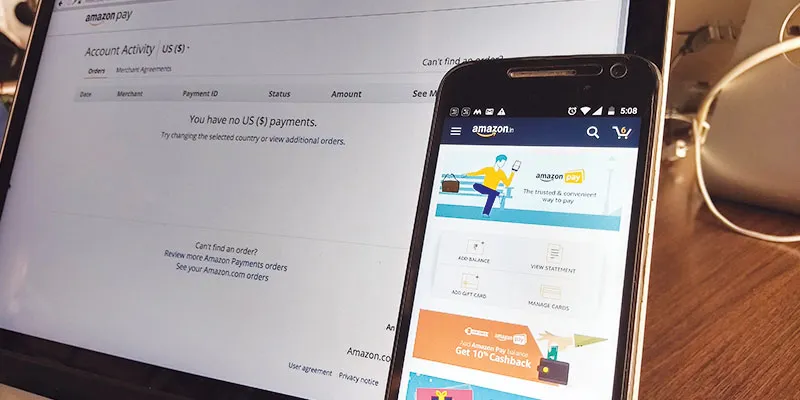Amazon pumps in Rs 195 Cr more into Amazon Pay
The recent funding comes just five months after the infusion of Rs 260 crore in September.
Amazon has pumped in an additional Rs 195 crore into its Indian payments arm Amazon Pay (India) private Ltd. The recent funding comes just five months after the infusion of Rs 260 crore in September.
Globally, Amazon has been ramping up its payment platform, and as per media reports, it is in early talks with financial institutions including J P Morgan Chase to help launch checking accounts, aimed at customers without bank accounts. In India, Amazon Pay is looking to push its wallet service beyond its marketplace to other online merchants, and challenge Flipkart’s PhonePe, Paytm, and other wallet startups.

The latest infusion came from Singapore-based Amazon Corporate Holdings Pvt Ltd and Mauritius-based Amazon.com.incs Ltd who were allotted 19,49,80,520 and 19,480 shares of Rs 10 face value each, respectively.
The recent funding is in line with Amazon India strategy, where the company is burning cash to ramp up its infrastructure and attract more customers. It has set up a credit operation for Indians without bank accounts, and has built a streamlined mobile app so that it doesn’t crash the cheaper phones typically used by small-town Indians.
Even as it builds its logistics and infrastructure, the company secured a license to operate the Amazon Pay digital wallet last year. It has been bringing more relevant products and offerings that suit local Indian flavours and conditions. For example, it has been helping customers get familiar with digital payment transactions, by getting new ecommerce customers who want to pay by cash, load money into their wallets by taking the help of the delivery person.
E-wallet companies have been impacted in recent times following the full KYC guidelines coming into effect. Till now, using an e-wallet involved just downloading the app, registering one’s mobile phone number, and linking it to one’s bank account. Now, customers also need to complete a more detailed KYC procedure that involves visiting a company-approved centre and getting documents verified.







